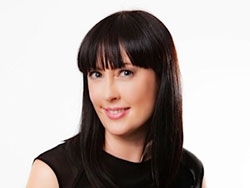Community pharmacists and GPs will work with Royal District Nursing Service (RDNS) nurses in a Victorian pilot project that aims to improve medication self-management among older patients.
The Quality Use of Medicines project will target older people taking multiple medications in a bid to reduce medication errors, hospital admissions and re-admissions.
Subscribe for FREE to the HealthTimes magazine
It comes as figures show more than 50 per cent of medication errors take place during care transitions and up to 15 per cent of hospital admissions in older people are medication related.
Pharmacy Guild Victorian branch president Anthony Tassone said the project aims to improve the medication reconciliation process.
“What they’ve found through research is when a patient transitions care, so goes from the hospital to the community when they’ve been discharged, there is a risk of errors with their medication or a discrepancy,” he says.
FEATURED JOBS
St Vincent's Private Hospital
“They’ve found if a health professional, let’s say a pharmacist, intervenes to provide a medication reconciliation and reconciles what they should be on based on the discharge and the involvement of district nurses who do home visits, they can reduce the rate of re-admissions to hospital.”
The project will support GP referrals to community pharmacists to access medication reconciliation services, and encourage GPs to work with patients and community pharmacists to ensure GP records reconcile against patients’ records
It will also develop health literacy for older patients on quality use of medicines and implement a re-call function six to 12 months after the initial medication reconciliation to assess any changes.
Mr Tassone said up to 100 patients in a high-risk target group, who take more than seven medications, will be the focus of the pilot but he said details, including which pharmacies will be involved, what geographic area the project will cover, and when the pilot will begin, are still being finalised.
He said the project is vital for older patients and an important step forward for the pharmacy profession.
“What it means is the opportunity to play a specific role in using our skills as medicine experts to intervene for patient benefit, and hopefully be remunerated for our skills and expertise in things that we do every day, but in a structured and coordinated way that can be consistent and ongoing," he said.
“Also, it provides another opportunity to work with other health professionals, doctors and nurses, in a team environment to deliver great patient outcomes.”
The Health Innovation and Reform Council (HIRC) recommended the project which has been funded by the Victorian Department of Health with in-kind contributions of staff through the Pharmacy Guild of Australia Victorian branch and the
RDNS.
RDNS Victoria general manager Fiona Hearn said new approaches are needed to support older people living in the community, who are taking more medications than ever before.
“RDNS’
home nursing and support services are integral to the well-being of many thousands of older people every day, especially in assisting them to manage their medicines safely,” she said.
“The aims of this project are in line with our commitment to investigate and implement new practices which safely enhance the independence and capacity of older people.”













